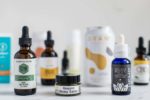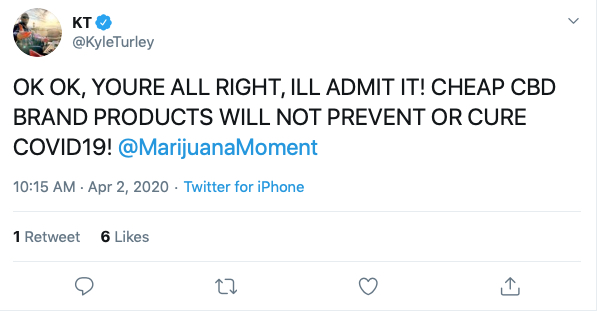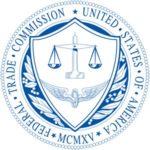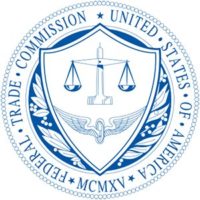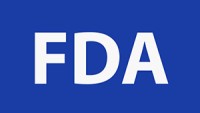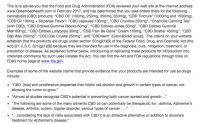The success of reputable cannabis and CBD brands has inspired an influx of inexperienced and disreputable competitors in the market. These so-called “bad actors” in CBD advertise products that are not manufactured under current Good Manufacturing Practices (cGMP), which help to ensure that all products are consistently produced and controlled according to specified quality standards. cGMP helps guard against risks of adulteration, cross-contamination and mislabeling to guarantee product quality, safety and efficacy.

CBD products without cGMP regulations are often inaccurately labeled and deceiving to consumers. In fact, in a test of over 100 CBD products available online and at retail locations, Johns Hopkins Medicine found significant evidence of inaccurate, misleading labeling of CBD content. The prevalence of such brands not only reduces consumer confidence in CBD but also limits the growth of the sector as a whole. Fortunately, CBD consumers and retailers can easily discriminate between a well-tested, reputable brand and inferior bad actors with a few straightforward, minimum requirements to look out for when selecting a product.
Why are “bad actors” a problem for consumers and the industry?
Bad actors in CBD sell products that are not produced under cGMP conditions and are typically not tested by third-party laboratories to ensure identity, purity, quality, strength and composition. This means they are not verified for contaminants, impurities, label claims and product specifications. This frequently results in misleading advertising with inaccurate levels of cannabinoids or traces of compounds not found on the label, like THC. To combat this, the FDA issues warning letters to actors that market products allegedly containing CBD—many of which are found not to contain the claimed levels of CBD and are not approved for the treatment of any medical condition. Still, bad actors manage to slip through the cracks and deceive consumers.

Bad actors that put anything in a bottle and make unsubstantiated medical claims hurt the reputable operators that strive to create safe and high-quality products. It is easy for consumers to be drawn to CBD products with big medical claims and lower prices, only to be disappointed when the product does not produce the advertised results. Inaccurately labeled products may contain unexpected levels of cannabinoids, including ingredients that consumers may not intend to ingest, like Delta-9 or Delta-8 THC. Along with unexpected levels of THC, many CBD products available now are not as pure as advertised, with one in four products going untested for contaminants like microbial content, pesticides, or heavy metals.
Further, inaccurate labeling of products and their compounds also prevents consumers from establishing a baseline impact of CBD on their bodies, leaving them vulnerable to inconsistent future experiences. Such a poor experience can turn consumers off to the category as a whole, drawing their trust away from not only the bad actors but also the reliable, reputable brands on the market. The saturation of the market with these disreputable brands delegitimizes a category that has only just begun to break down the stigmas, creating stagnation rather than growth as consumers remain wary of low-quality products.
How can consumers identify bad actors in CBD?
There are several simple ways to identify a bad actor among CBD products and make certain that both consumers and retailers purchase quality, reliable and safe brands in legitimate sales channels. To start, consumers should avoid all CBD products that are marketed with unsubstantiated medical claims. This is a significant area of abuse, as brands that relate any form of CBD product to a disease state, like cancer, should not be trusted. The science to support such medical claims has not been completed, yet, product marketing is years ahead of the evidence to support such claims. Unsupported medical claims could also mislead consumers that may need more serious medical intervention.

Additionally, consumers must review the packaging, which should include nutrition information in the form of a supplement fact label. The label should include the serving size, number of servings per container, a list of all dietary ingredients in the product and the amount per serving of each ingredient. All labels should include a net quantity of contents, lot number or batch ID, the name and address of the manufacturer, and an expiration or manufacturing date. These signs of a reputable brand are easy to look for and can save consumers from the trouble of selecting the wrong CBD product.
What to look for when selecting a CBD product
With this in mind, products from reputable, tested brands can be identified by a few key factors. Reputable CBD companies are already compliant with the FDA regulations on nutritional supplements, including a nutritional or supplement fact panel on the packaging—just like vitamins. The information in this panel should include all the active cannabinoids in the product, both per serving and package. Clear potency labeling allows consumers to confidently select products that suit their needs and understand the baseline impact of CBD concentration on their bodies, thus helping them to tailor their experience with thoughtful product selection.
Reputable brands also include a convenient QR code on the packaging, linking the product to a certificate of analysis that details the testing results to demonstrate compliance with product standards and label claims. In terms of specific ingredients, consumers should be skeptical of high concentration levels of “flavor of the month” minor cannabinoids, which are often associated with unsubstantiated medical claims. Current scientific research has set its focus on major cannabinoids like CBD and Delta-9 THC, leaving additional research necessary for understanding minor cannabinoids. Minor cannabinoids are typically included in full spectrum products at concentrations found naturally in the cannabis plant, which is a safer approach to consuming CBD until more research is completed.
Consumers should not let the existence of unreliable, untrustworthy brands curtail their confidence in the CBD sector—there are many high-quality, safe and trusted brands on the market. With a knowledgeable and discerning eye, consumers and retailers can easily select top-quality CBD products that millions of consumers have found to improve many aspects of their health and well-being. Looking ahead, clear federal regulations for CBD products that require mandatory product registration, compliance with product labeling, packaging and cGMP will be crucial in weeding out bad actors and will allow compliant companies to gain consumer trust and responsibly grow the CBD category.


